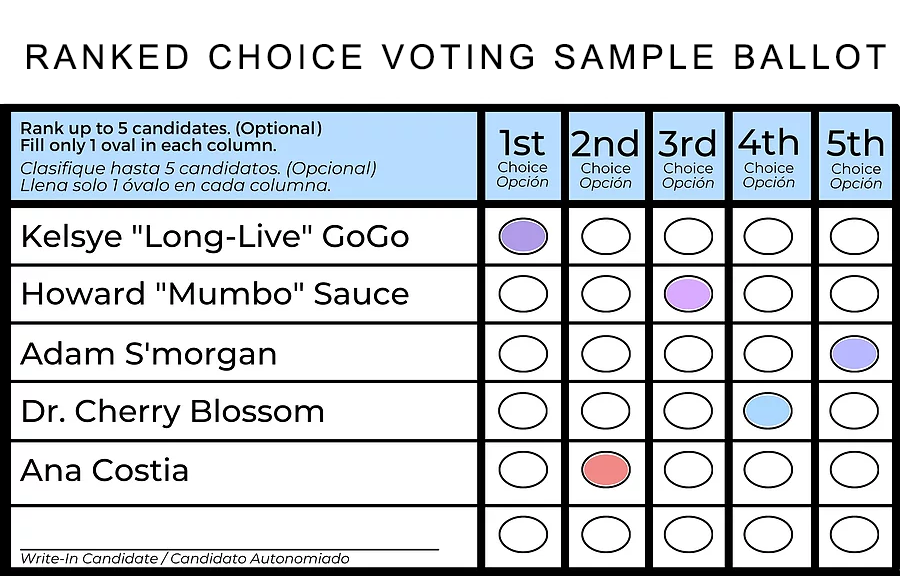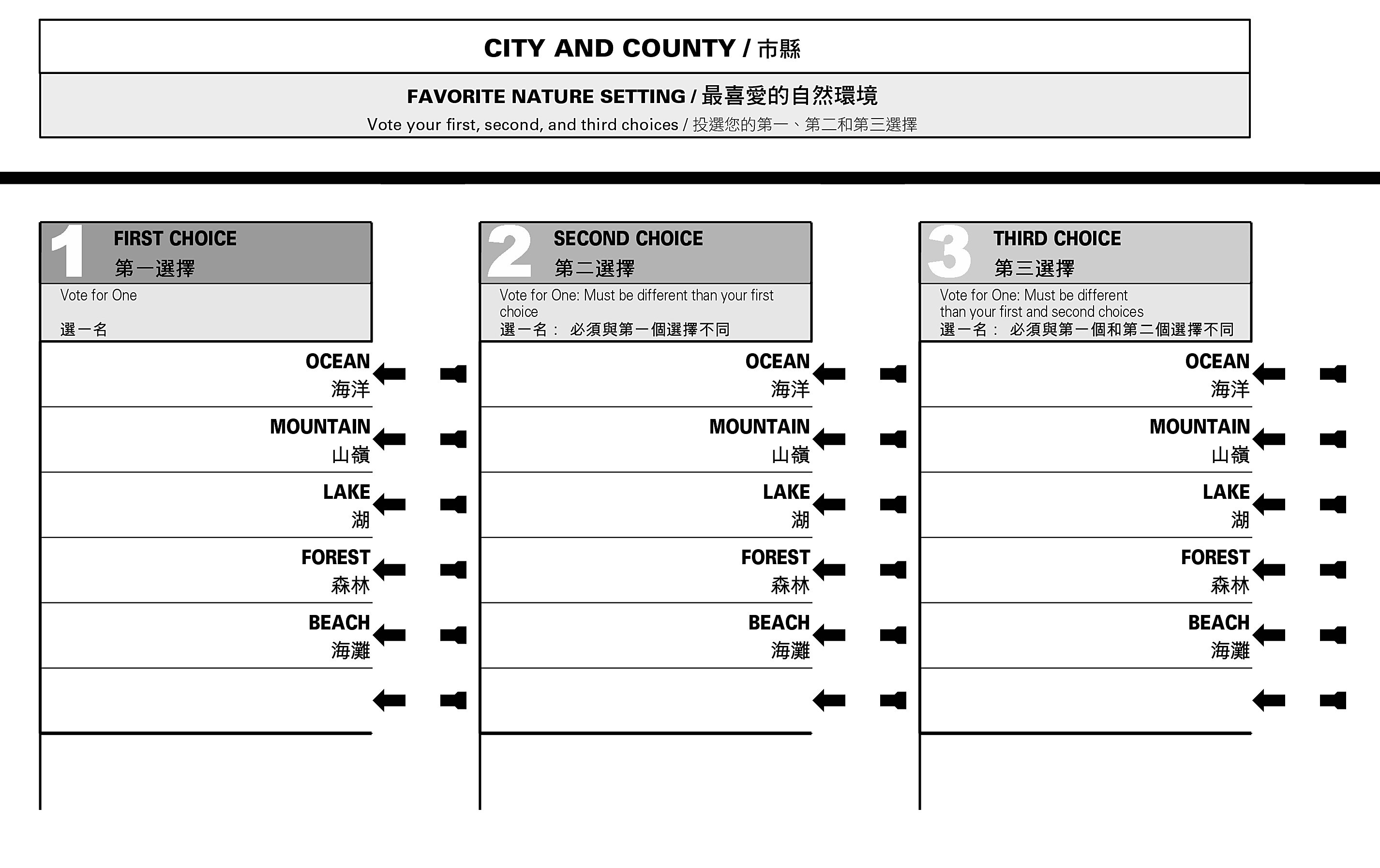I don’t know why people think RCV would be considered difficult, we love ranking shit.
It’s about preservation of power.
In any solid red or blue location, the party in control will promote any narrative to discredit RCV because it could only weaken their influence in the area.
For example, most people who are progressives vote blue only because the alternative is far worse. But if a heavily blue state were to pass RCV, it might mean gasp that Democrats lose seats to a more progressive party.
WORST nightmare of liberal fortresses with a significant percentage of alienated progressives such as Detroit, Portland, Austin and all of California!
We should explain it to voters as “create a buzzfeed listicle of your favourite politicians”
RCV: where you create a tier list of all available candidates
Ballot design.
Some RCV ballot designs are better than others. For example:


Also, as an experience designer who has had the pleasure of sitting in many many user tests, never under estimate how dumb people are. Some people are going to be confused by the new thing because it’s new. Good news is that this goes away after an election or two and most of the public gets used to it.
Great example names BTW! GoGo/Sauce 2028!
Yeah that’s an incredibly good point.
How dare you rack Dr Cherry Blossom so low. SHE STRIPPED HER WAY THROUGH MED SCHOOL
Yup, just gotta build up the movement and educate people so they can pressure the politicians.
Fuck you Betty, Sue is my #1 MySpace friend!
Tier zoo has entered the chat
I just watched the Turtle list the other day haha
And we have fucking computers to do most of the heavy lifting!
WHY ARE WE YELLING?!
LOOOOUD NOISES
And yet here in Alaska there’s a concerted effort to eliminate Ranked Choice Voting, I can only assume by people who are upset at the establishment losing some of it’s grip.
Status gonna quo
Ranked choice is already banned in 10 red states BECAUSE THEY KNOW THEY’D FUCKIN LOSE!
RCV: It’s voting, but you get to be more judgemental.
There. Marketing for a sizeable portion of the electorate to get on board with it.
Tier list voting
Sorry about the caps. It’s the title of the article.
IT’S OKAY. WE UNDERSTAND.
deleted by creator
Do they say what state or are we supposed to just know this is Virginia?
Across Virginia and nationwide, voters say they like RCV and want to expand it.
Not the clearest, but it’s in there.
Darn, I missed it, about halfway down
In a strange quirk, it was actually every city in the U.S. named Arlington at the same time.
Disclaimer: I am lying.
Ahh yes but what was their second choice on those points?
well… doesn’t matter, ranked choice hit the threshold. ;-)
ranked choice voting will help save whats left of american democracy.
deleted by creator
If you dive into the theory at all about how ranked choice systems are gamed I think everyone is doomed for a headache.
Don’t feel bad, it’s infinitely better than what we have broadly, but it demands a lot more of the average voter if you’re not voting a party ticket. If you’re struggling you’re doing it right.
It varies between implementations, here’s a rough example for how the concept works (details may differ)
It’s important to emphasize that in each step each ballot only counts for one candidate.
First you count 1st choice votes. If there’s already a winner here then you’re done. Second choices don’t matter if a majority already agree on a first choice.
If not (eg. if no candidate has above 50%) then you eliminate the least popular candidates first. Once a candidate has been eliminated, any ballot with the eliminated candidate as 1st gets transferred to the 2nd choice candidate.
Consider the US election - if your first choice is a 3rd party candidate instead of the 2 well known ones, they’re probably not getting a lot of votes. Once it’s determined your 1st choice can’t win and they’re eliminated, your 2nd choice on the ballot is counted instead. This stacks on top of the not-eliminated 1st choice votes from the first step.
Why does this matter politically?
Because of say Trump gets 48% 1st choice votes, Biden gets 40% 1st choice and then 12% 2nd choice votes = 52% total and a win, then that’s a powerful signal about which alternative candidates can become viable and a powerful method of expressing discontent with the primary candidate despite being willing to vote for “the lesser of two evils”. You can express your first preference without giving a bad candidate a bigger chance to win.
Another interesting feature is that it’s possible to win a majority of votes being 2nd choice votes, but that’s really only likely if there’s many candidates and 1 candidate that most finds acceptable but not preferred, because all the ones that are preferred by a few but disliked by most gets disqualified one by one until all those votes has gotten transferred to the broadly acceptable candidate
WOOOOO YEAH BABY








